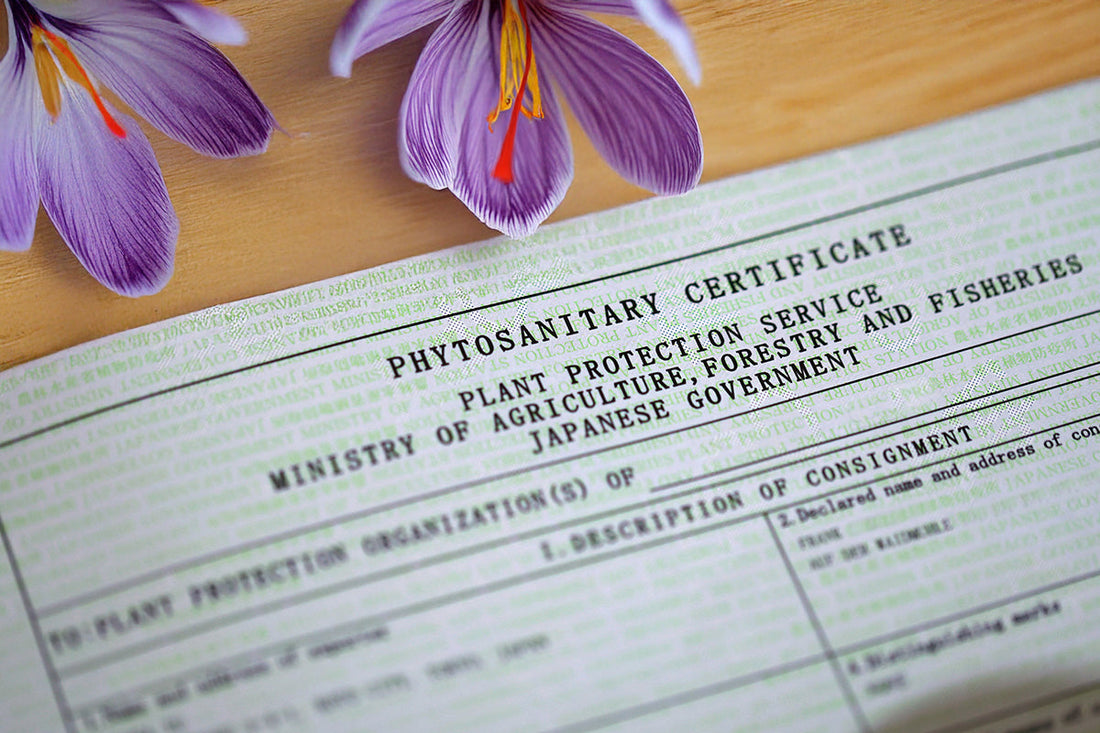
What is a phytosanitary certificate?
Share
A phytosanitary certificate is an official document issued by the plant health authority of the exporting country. It certifies that a shipment of plants, bulbs, or plant products—like Crocus sativus bulbs—is free from pests, diseases, and soil contamination, and complies with the import requirements of the destination country.
If you’re importing saffron bulbs or any other live plant material, this certificate is essential for smooth customs clearance and legal agricultural trade.
Why is a phytosanitary certificate important?
- Prevents the spread of harmful pests and diseases;
- Required by customs in most countries;
- Proof of origin and inspection;
- Assures the buyer of healthy, certified plant material.
Important: At Roco Saffron, we include a phytosanitary certificate with every international shipment of Crocus sativus bulbs, ensuring your order meets all legal and plant health standards.
The anatomy of a phytosanitary certificate
Let’s break down the key components you’ll find on a standard phytosanitary certificate:
| Section | What it includes |
|---|---|
| Certificate number | A unique tracking number assigned by the issuing authority. |
| Exporter details | The name and address of the exporter (e.g., Roco Saffron). |
| Consignee information | The name and address of the recipient (importer). |
| Declared plant products | Botanical name (e.g., Crocus sativus), quantity, and description (e.g., bulbs). |
| Origin of the goods | The country or region where the bulbs were grown and processed. |
| Inspection date | The date on which the shipment was officially inspected. |
| Means of conveyance | Shipping method (e.g., air freight, sea freight, reefer container). |
| Point of entry | The intended port or airport where the shipment will enter the importing country. |
| Additional declarations | Specific statements based on the destination country's requirements. |
| Official stamp and signature | Stamp of the plant health authority and authorized officer's signature. |
When is a phytosanitary certificate needed?
A phytosanitary certificate is required when:
- You're importing live plants or bulbs (like Crocus sativus);
- The importing country has plant health regulations (most do);
- You're clearing goods through agricultural or customs inspection.
Whether you're ordering 100,000 saffron bulbs for a commercial farm or a smaller quantity for trial cultivation, this document is your passport to compliance.
A phytosanitary certificate may look like just another piece of paper—but in the world of plant trade, it’s one of the most important. It protects ecosystems, ensures legal trade, and gives both exporters and importers peace of mind.
